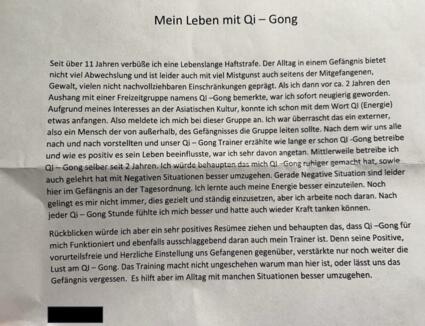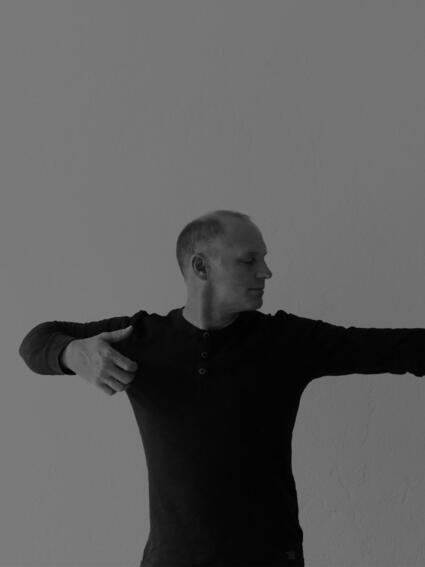
Qi Gong training in the correctional facility
In cooperation with a correctional institution (JVA) a weekly Qi Gong training is offered for inmates.
Incarceration is a difficult experience for any person. For inmates, life can be an endless cycle of stress and anxiety. In addition to the obvious challenges of incarceration, prisoners are often exposed to violence and endure isolation from family and friends. It's no wonder that prisoners are at high risk for mental health problems.
Meditation could be used to help here. A growing number of studies have shown that meditation can generally help reduce stress and promote positive mental health - why not do the same for inmates in a correctional facility. In this project, Qi Gong - a form of meditation - was chosen as an intervention for correctional inmates.
The Chinese practice of Qi Gong has been used for centuries to improve physical and mental health. More specifically, Qi Gong is a form of moving meditation that involves gentle movements, stretching, deep breathing and relaxation. Qi Gong aims to improve the flow of energy in the body. This is believed to promote physical and mental well-being, which could impact prisoners' mental health, reduce stress and improve sleep quality.
Such training could also help prisoners better manage their stress levels and improve their overall well-being. This, in turn, could lead to a reduction in incidents of violence and aggression in prisons and prepare prisoners for life after prison.
The Institute for Compassion, in collaboration with a correctional facility, offers weekly Qi Gong exercises for prisoners. Mainly the method YuanGong (moving meditation) is used.
The training is being scientifically evaluated, and initial results show a positive impact on psychological well-being.
PARTNER
JVA
THEME
Qi Gong-Training in the jail
YEAR
2022






